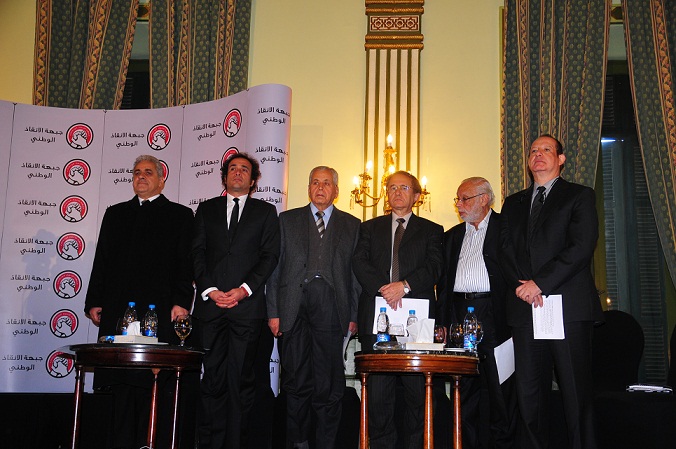Ever since France and the Netherlands rejected the European Union’s proposed Constitutional Treaty, EU leaders have been busy pointing fingers at each other, or blaming French and Dutch citizens for misunderstanding the question they had been asked. But no amount of finger pointing can obscure the fact that, 50 years after the European Community’s creation, Europe badly needs a new political framework, if not a new project, to shore up its unity. To be sure, French and Dutch citizens did not respond to the question that they were supposed to answer. Their vote was a protest against globalization, a rejection of the contemporary world, with its distant and incomprehensible governing mechanisms. Like the anti-globalization movement, the new anti-Europeanism can be regarded as a demand for a “different world – in this case, an “alter-Europeanism. The two world wars and the Cold War shaped European integration as a project of peace, defense of the West’s fundamental values, and common economic prosperity. But the collapse of communism in 1989, and the chance to overcome the continent’s historical divisions, now required a redefinition of the European project.
The Treaties of Maastricht (1992) and Amsterdam (1997) created a new organizational structure for the EU and laid the foundations for political institutions equal to Europe’s economic power. The Treaty of Nice (2000) was result of a rather poor compromise. Declarations by German Chancellor Angela Merkel, whose country assumed the EU’s rotating six-month presidency at the beginning of the year 2007, are unambiguous: the period of reflection, approved by the European Commission in 2005, has ended. The German presidency will seek to implement the Constitutional Treaty resolutions, and the Berlin Declaration of March 25, 2007 – timed to mark the 50th anniversary of the Treaty of Rome – will offer a vision of the EU’s future.
The aim is to leave to Germany’s successors in the EU presidency – Slovenia, Portugal, and France–a road map for future reform. In the past, when politicians debated the EU’s future, they spoke of a definitive formula for European integration, as defined in a famous lecture in 2000 by German Foreign Minister Joschka Fischer. The accompanying intellectual debate, initiated by the philosophers Jurgen Habermas and Jacques Derrida, defined the nature of European identity, above all, against the foil of the United States, but also in terms of the challenges posed by globalization. A similar debate addressing key questions concerning the EU’s future should be launched now. First, how should relations between national and common European interests be defined? At issue is not only the allocation of competencies, but also the more fundamental matter of when to rely on national governments’ agreement and when to turn to common EU institutions, namely the European Commission and the European Parliament. The second question concerns the EU’s scope. Europe is a peculiar combination of geography and history, but the EU’s boundaries – and thus the prospects for its further enlargement – are determined as much by its capacity to integrate candidate countries as by these countries’ own adaptive abilities. After the accession of Bulgaria and Romania, the EU has 27 members, with Turkey and Croatia, but also the other Balkan states, as well as Ukraine and Georgia, waiting in line. Is enlargement the only effective policy for stabilization and peace? Or can the EU’s “neighborhood policy, falling short of full admission for some of the countries knocking at the door, become an instrument for supporting development and stabilization, much as the Marshall Plan once was for Western Europe? Third, instead of a futile theoretical debate over “liberal versus “social models of economic development, we need to compare the experiences of such countries as Great Britain, Sweden, Germany and France. Are their experiences mutually exclusive, or is convergence possible? Which policies in fact reduce unemployment? Which measures can ensure the EU’s global competitiveness? How can we narrow the existing differences in development and material welfare within Europe? Fourth, the EU’s aspiration for a common foreign and security policy must be addressed. The threats facing the world today are supranational, so counteracting them must be supranational, too. But this is impossible without a clear European identity – and thus a common interest to be asserted and defended. Only then will a common approach to pressing issues, such as energy supplies, be possible. Such questions could be the topic of a consultative referendum held simultaneously in all member states. Its results would allow the treaty to be presented in a simplified version for ratification by the nine member states that have still not done so. The EU would then gain both a political dimension and clear rules of procedure. The alternative is paralysis. If the EU continues to be governed under the Treaty of Nice, there will be no room for further political integration or enlargement. Nor do the current rules ensure the effective functioning of EU institutions, as they exist now. Drafting a new constitutional treaty would probably require even more time than was needed for the current proposal. In these circumstances, pragmatism should prevail. Democracy may carry certain short-term costs, but they are always lower than the long-term damage that comes from a lack of popular participation. Only a new European debate that includes both Europe’s citizens and its institutions can combat “alter-Europeanism effectively.
The time may not be ripe for a true European constitution, but confronting, rather than evading, the fundamental issues that the EU faces could create a context for reviving the constitutional treaty and preparing the EU for the challenges of our time. Bronislaw Geremek, a former Polish foreign minister, is a member of the European Parliament. THE DAILY STAR publishes this commentary in collaboration with Project Syndicate (www.project-syndicate.org)

